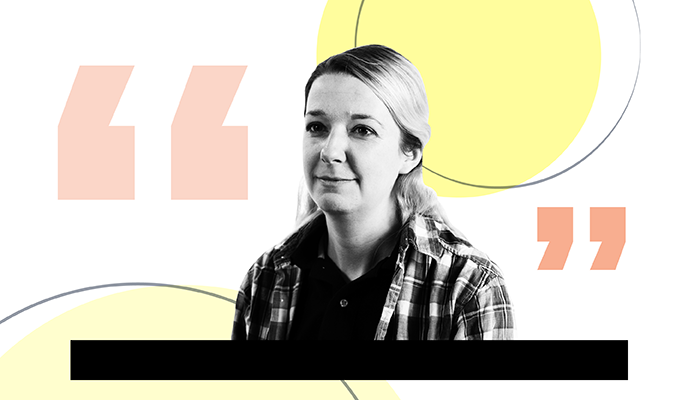By now you’ll all have heard the news: Donald Trump has nominated Robert F Kennedy (RFK) Jr. to lead the Department of Health and Human Services, although the decision still needs to be endorsed by the Senate. RFK Jr.’s name was widely touted as a potential candidate before the outcome of the election, but many were still surprised that Trump actually went ahead with it – including Trump-appointed former FDA Commissioner and Pfizer board member Scott Gottlieb, who said that Kennedy’s confirmation will “cost lives in this country”.

Democrats have been swift to voice their opinion. Here’s a selection of their reactions:
A number of scientists have also expressed concern. For example:
David Elliman, Consultant Paediatrician, Great Ormond Street Hospital for Children:
“The news that Donald Trump will be nominating Robert F Kennedy for US Secretary of Health and Human Services is very worrying. While RFK Jr.’s desire to tackle chronic conditions, including obesity, is commendable, how he might go about it is less clear.
“In his earlier days, he was an ardent conservationist, which is to be applauded. What is really concerning are his views on vaccination. He has perpetuated myths, including that of a link between MMR vaccine and autism, with an utter disregard for the evidence. If he is appointed and continues in the same mode, I fear not just for the vaccination programme in the USA, but similar programmes around the world, and for healthcare, in general. Vaccination has probably saved more lives and is better researched than most, if not all, aspects of healthcare. RFK Jr. could set this back and be responsible for the death and disability of myriads of people, particularly children.
“Let us hope that, if appointed, he adopts a more responsible attitude. Directing his energies to the ‘industrial food complex’ would be no bad thing, as would ensuring more transparency from pharmaceutical companies.”
When it comes to pharmaceutical stakeholders, some responses have been diplomatic, with PhRMA confirming that they “want to work with the Trump administration” to iron out any flaws in Biden’s flagship Inflation Reduction Act. The biotechnology Innovation Organization (BIO) also looks forward “to working closely with President-elect Trump, his incoming Administration, and members of Congress.” Elsewhere, the American Association Public Health Association (APHA) was not so optimistic, suggesting that “The American people deserve better than Mr. Kennedy”.
Born on January 17, 1954, RFK Jr. is the third of 11 children of Senator Robert F. Kennedy and Ethel Skakel Kennedy, and he is a nephew of President John F. Kennedy. Having earned a bachelor's degree from Harvard University in 1976, a Juris Doctor from the University of Virginia School of Law, and a Master of Laws in environmental law from Pace University, Kennedy is an established environmental attorney, author, and activist. He served as chief prosecuting attorney for the Hudson Riverkeeper and as president of the Waterkeeper Alliance. His reputation carries a fearlessness in bringing environmental lawsuits to major global corporations.
More recently, Kennedy has become skeptical about vaccines and the big pharmaceutical stakeholders that manufacture them, founding the World Mercury Project (later known as the Children's Health Defense), an organization known for its anti-vaccine stance. Having now found his way into the role of United States Secretary of Health and Human Services, pending Senate confirmation, he has returned the Kennedy family to mainstream politics, but we await the effects of this nomination – for good or ill – with interest.
Co-President of Public Citizen Robert Weisman has suggested Kennedy “shouldn’t be allowed in the building at the Department of Health and Human Services (HHS), let alone be placed in charge of the nation’s public health agency.” Keck Medicine professor Apu Akkad described the nomination on a “scary day for public health”.
It is undoubtedly an unconventional nomination, tinged – as with many of Trump’s strategies – with a hint of divisiveness, yet there is more than vaccine skepticism at play. Kennedy’s ruthless pursuit for corporate justice and vociferous opposition to corruption and cronyism could be a good thing for regulatory organizations, according to David Nunan, Senior Research Fellow at the Centre for Evidence Based Medicine, University of Oxford: “One of the key issues Robert F. Kennedy Jr. raises is the need to address the ‘revolving door’ phenomenon within key health organizations like the FDA. This practice, where leaders transition directly into high-paying consultancy roles for companies regulated by the FDA, creates clear conflicts of interest. His stance on ending this cycle is a point many can agree on, as it would strengthen the integrity of these health institutions.”
Though Nunan’s statement reads like a vindication for RFK Jr.’s nomination, his point is one that stresses the importance of institutional reform, rather than approval of the harbinger of that reform, concluding his statement by suggesting Kennedy is not the right man for the job. Democratic Colorado Governor Jared Polis, however, disagrees. Indeed, Polis has expressed excitement for the nomination and believes Kennedy will spearhead the legal actions that will ultimately “improve our health.”
It is difficult to find approval from anyone outside of Trump’s immediate circle (we tried), but whether people agree or disagree with the choice, everybody’s talking about it.
It would be great to hear what you’ve been discussing, so get in touch with your thoughts, ideas, and opinions.




